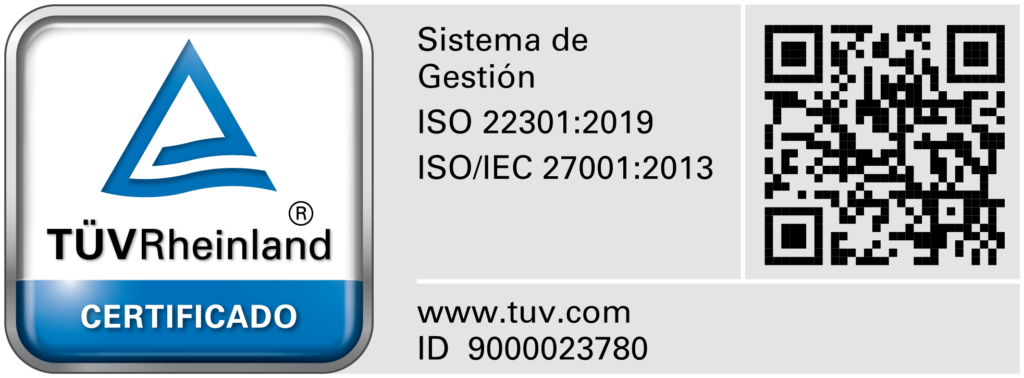Today we celebrate the real Solidarity Day!
But… isn’t the International Day of Solidarity celebrated on December 20th?
Yes, but today is the real anniversary of Solidarity Day, which was initiated by an independent social movement in Poland in 1980. The movement gained worldwide importance when the Nobel Peace Prize was awarded to the leader of this movement, Lech Walesa. On 15 November 2000, the United Nations General Assembly declared the anniversary day of the movement – on August 31st – as International Solidarity Day; however, the date was changed to December the 20th by a resolution of 2005, losing part of its meaning.
A day for everyone to participate
Solidarity is the basis of human society; it reflects the concept of social life, brotherhood and a spirit of community. Solidarity is not only for the kindest; it is a task for all human beings in whatever society they live in. The UN reminds us that cooperation between all countries and peoples, solidarity is not only a moral requirement, but also a precondition for ending poverty, guaranteeing world peace and ensuring that rights are respected.
What is the point of celebrating that day?
- A day to celebrate our unity and be one more link in the human network.
- A day to raise public awareness and encourage debate on ways to promote solidarity
- A day of action to encourage new initiatives
- A day to remind governments to do their duty and take timely action (Millennium Development Goals, including poverty eradication)
Some ways to be committed to solidarity today and throughout the year:
- Contribute financially as much as you can. How? By making a donation to a project that really moves you, by becoming a member of an NGO, by sponsoring a child, by signing up for a charity race… If you haven’t decided yet, we advise you to take a look at the interactive platform Quiero Ayudar (I Want to Help) which offers a meeting place for those who want to help and the social organizations that provide help.
- Donate what you no longer need. You can help by offering something that could help someone else more than yourself. From clothes to children’s toys as well as books that other children can use to study. At Moneytrans we know that there are things that are worth much more in an NGO than in the closet of our homes, so this month we are organizing a collection of toys, clothes and school supplies for the children of the Mweya Elisa school in Kinshasa, Democratic Republic of Congo. This solidarity action goes hand in hand with the crowfunding that we started last year to renovate the school and contribute to the school expenses of the children of that school. The Democratic Republic of the Congo is experiencing a major humanitarian crisis and by having a branch there, we know firsthand that its people are caught in a cycle of violence and political turmoil.
There is growing concern about the start of a civil war like the one that killed five million people between 1997 and 2003. According to a UN report in March, more than 13 million Congolese are in need of humanitarian assistance, twice as many as a year ago, and 7.7 million are facing serious food insecurity, 30 percent more than a year ago. According to the latest figures, there are more than 4.5 million displaced people, the highest number for the DRC in 20 years.
“It is about giving a second life to those backpacks, toys or clothes that children in our environment no longer use, or donating promotional items that we receive from other companies and do not use (pens, notebooks,…) or buying school materials, our goal is to collaborate and bring joy and enthusiasm to these children, in short, do a little justice and offer solidarity and generosity for free”, tells us Leticia Carbajo, Country Manager of Moneytrans Spain who launched the project.
- Become a volunteer. If you don’t have or can’t donate money or material things, your time is also valuable. There are countless options to help others, both in your city and in other countries. The Esplai Foundation gives us some ideas:
- Community volunteering: promoting civic, neighbourhood, collective and citizen participation movements for community development and cohesion
- Environmental volunteering: to participate directly in the conservation of the environment and to raise public awareness of nature, sustainability and the ecological balance of the planet
- Cultural volunteering: recovering, preserving or disseminating cultural and historical identity and heritage
- Sports volunteering: promoting the social integration of people in a community
- Educational volunteering: participating in the education of children, young people and adults
- International volunteering: to promote socio-economic promotion or community development in order to fight poverty and improve the living conditions of a community or to promote fair trade.
- Leisure/ free time volunteering: to promote socio-educational, cultural and sports activities, etc. in order to promote education and community development
- Volunteerism in civil protection: responding to and providing relief in emergency situations (natural disasters, wars, attacks, accidents, etc.)
- Social and health volunteering: improving the quality of life of people affected by a disease and their families, implementing awareness programmes on donation, …
- Social volunteering: helping disabled people, children, young people, immigrants and refugees, prisoners and ex-prisoners, homeless people, elderly people, people with addictions…
- Take care of the environment. Whether it’s at home or in your company, solidarity also means taking care of our environment. In 2014, Spain was the seventh country in the world to take the greatest care of the environment, congratulations!
- Reducing energy and water consumption. We use the best available techniques and regularly review our energy and water consumption.
- Optimizing the packaging of our products. We have replaced our old water fountain with a modern dispenser connected to our water outlet that filters it out – no more plastic bottles!
- Providing recycling bins and raising awareness of the proper use of paper – digital formats are a good alternative for reducing the use of paper.
- Creating a green office: use of renewable or recycled materials (cork wall, …)
- Spreading the word about your friends’ or acquaintances’ projects, participating in activities to publicise a campaign, or in charity events, days of living together, etc. Also instill in your children values of solidarity, based on respect, trust, sincerity and loyalty.
- Donate health. If your health allows it, you can regularly donate blood, a simple gesture that saves millions of lives every day. You can also become an organ donor, a marrow donor, an ovarian donor, etc.
Also remember that solidarity also benefits you in terms of well-being, improves your self-esteem and helps you develop social skills – find what really moves you and get involved! No one wants you to end the injustices in the world alone and therefore no one will look down on you because you support one cause and not another.

Ready to celebrate this great day of Solidarity with us?







